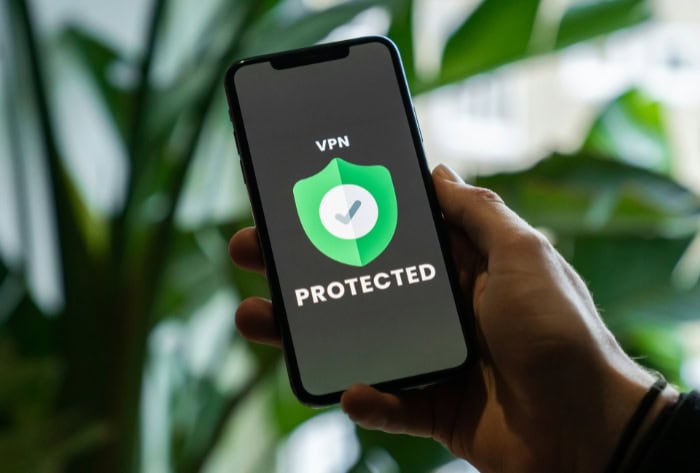The Hidden Risks of Lifetime VPN Subscriptions

Lifetime VPN subscriptions have become an attractive option for many people looking to secure their online activity without the hassle of recurring payments.
With VPNs growing in popularity due to increasing concerns over privacy and security, the idea of paying once for a service that promises protection forever seems like a great deal at first glance.
However, behind the enticing offer lies a range of potential drawbacks that can leave users with far less than they bargained for.
Financial Sustainability and Long-Term Value
Lifetime VPN subscriptions often seem like a great bargain, offering permanent access to a service for a one-time fee. However, this type of model raises significant questions about long-term financial sustainability and the value users get over time.
Many lifetime VPN providers may not be able to maintain the quality of their service in the long run, leading to a variety of problems that can affect the user experience.
Unsustainable Business Models
VPN services require constant upkeep, from maintaining server infrastructure to ensuring security protocols remain up to date.
Many lifetime VPN providers rely on upfront payments to cover these costs, but the reality is that a one-time payment rarely provides enough money to fund years, let alone decades, of reliable service.
Over time, the costs of maintaining servers, paying staff, and upgrading technologies continue to rise, while the revenue stream stays stagnant.
Without ongoing income, companies may struggle to cover their operational costs. This can lead to service degradation, where server speeds slow down, security features become outdated, and customer support becomes less responsive.
In some cases, providers may even shut down entirely, leaving users without the service they paid for.
Unlike subscription-based VPNs, which have a steady flow of income from regular customers, lifetime VPNs are in constant danger of becoming financially unsustainable.
False Economy
While the appeal of a lifetime subscription lies in its apparent cost-effectiveness, it often results in a lower-quality service over time.
The initial savings can be enticing—pay once and use the VPN indefinitely—but the reality is that this model can lead to issues that diminish the value of the service in the long term.
With standard subscription models, providers can reinvest a portion of the ongoing revenue into improving their infrastructure, expanding server networks, and maintaining high levels of security. This reinvestment helps ensure that users have access to a fast, reliable, and secure service.
In contrast, lifetime VPNs tend to operate with a fixed budget, which often limits their ability to upgrade servers or respond to technical challenges. Over time, this can result in outdated technology, slower speeds, and more frequent outages.
What seemed like a great deal at first can quickly turn into a frustrating experience for users who expect the same service quality year after year.
Limited Refund Policies
Another aspect that makes lifetime VPNs a risky investment is their often restrictive refund policies. Many providers either offer no refunds or impose strict limitations on when and how refunds can be requested.
This means that if users are unhappy with the service—due to poor speeds, unreliable connections, or other issues—they may find themselves stuck without a way to get their money back.
In some cases, users may not realize the limitations of the service until after the refund window has closed.
Once that happens, they are left with few options other than to continue using a subpar service, switch to a different VPN provider, or simply lose their investment altogether.
On the other hand, subscription-based VPNs typically offer more flexible refund policies, allowing users to cancel their service if they are not satisfied and switch to a better option without significant financial loss.
Service Reliability and Performance

A VPN service’s reliability and performance are critical factors that can make or break the user experience. A high-quality VPN should provide consistent speeds, stable connections, and access to a wide range of secure servers.
However, lifetime VPN subscriptions often fall short in these areas as the providers struggle to maintain the necessary infrastructure over time. This can lead to a gradual decline in performance, leaving users with a service that no longer meets their needs.
Degradation Over Time
VPN services require constant updates and maintenance to stay competitive and deliver optimal performance. Regular improvements to server infrastructure, security protocols, and software are essential to keep up with growing user demands and evolving online threats.
However, lifetime VPN providers often lack the financial resources needed to continuously invest in these areas.
Over time, this lack of investment can lead to outdated servers that can no longer handle modern encryption standards or high levels of traffic. As a result, users may experience slower speeds, higher latency, and more frequent connection drops.
These issues are particularly noticeable in high-demand activities such as streaming, online gaming, or large file transfers, where even small delays or interruptions can become frustrating.
In contrast, subscription-based VPNs are more likely to reinvest in their infrastructure to keep up with user expectations. Because they have a steady flow of income, they can afford to upgrade their servers, improve their software, and address any technical issues promptly.
This ongoing commitment to service quality is often missing in lifetime VPN subscriptions, leading to a gradual decline in performance as the years go by.
Inconsistent Speeds and Connectivity
One of the most common complaints about lifetime VPN services is the inconsistency in speed and connectivity. VPNs can slow down internet speeds due to the encryption process and data routing through remote servers, but high-quality providers work hard to minimize this impact.
Unfortunately, lifetime VPNs often struggle to maintain the necessary infrastructure to provide stable and fast connections over time.
Without regular upgrades to their servers, lifetime VPNs are more likely to experience congestion, where too many users are connected to the same server, leading to slower speeds.
This can be particularly troublesome for users who rely on their VPN for activities like streaming HD content, gaming, or video conferencing, where speed is crucial.
Buffering, lag, or dropped connections can quickly turn these activities into a frustrating experience.
Additionally, unreliable connectivity can pose a risk to users who need a VPN for secure browsing or accessing sensitive information. If the connection drops frequently or is unstable, users may find themselves exposed to potential privacy risks in moments when the VPN is not active.
This inconsistency makes lifetime VPNs a poor choice for anyone who needs a reliable connection for professional or personal use.
Server Availability
The number of available servers is another significant factor that affects the performance of a VPN service. A larger, more geographically diverse server network allows users to connect to servers closer to their physical location, which typically results in faster speeds and more stable connections.
Additionally, having more servers helps distribute user traffic evenly, reducing the risk of overcrowding and slowdowns.
Lifetime VPN providers often lack the financial resources to expand their server networks, leading to a limited number of available servers. As more users sign up for the service, existing servers can become overcrowded, resulting in slower speeds and unreliable connections.
This is especially problematic for users in regions with fewer server options, as they may be forced to connect to servers located far from their physical location, further reducing performance.
In contrast, premium VPN providers that operate on a subscription model regularly invest in expanding their server networks to meet growing demand.
These providers typically offer a wide range of server locations, allowing users to choose the best option for their needs, whether for streaming, gaming, or secure browsing.
This flexibility is often missing in lifetime VPN subscriptions, where users may be stuck with limited server choices and overcrowded connections.
Security and Privacy Concerns

When choosing a VPN, security and privacy should be at the forefront of the decision-making process. After all, a VPN’s primary role is to protect users' data and ensure their online activities remain private.
However, lifetime VPN subscriptions often come with significant risks in both of these areas. Over time, the lack of regular updates, weak privacy policies, and potential for data breaches can compromise users' safety and leave them exposed.
Lack of Regular Updates
The online security environment is constantly evolving as new threats emerge and attackers find more sophisticated ways to breach systems. To remain effective, VPNs must regularly update their encryption protocols and release security patches to address vulnerabilities.
Unfortunately, many lifetime VPN providers fail to keep up with these necessary updates due to limited financial resources or lack of ongoing development efforts.
Without regular updates, lifetime VPNs can quickly become vulnerable to attacks that exploit outdated encryption methods or unpatched software flaws. Encryption is one of the most critical components of a VPN's security.
If the encryption protocols are not updated to match current standards, hackers, cybercriminals, or even government agencies could potentially intercept and decrypt users' data.
In contrast, reputable VPN services that operate on a subscription model often have dedicated security teams that continuously monitor for vulnerabilities and release updates to keep user data protected.
This ongoing commitment to security is vital in today's digital environment, where threats change rapidly.
With a lifetime VPN, users are at risk of relying on outdated protection that could easily be bypassed by modern threats.
Weak Privacy Policies
Another concern with lifetime VPN services is their privacy policies, which can often be vague or misleading. Since these providers receive a one-time payment with no ongoing revenue, they may look for alternative ways to generate income.
One of the most common strategies is to monetize user data, either by selling it to advertisers or other third parties. This practice directly contradicts the purpose of using a VPN, which is to protect users' privacy and keep their online activities hidden.
Some lifetime VPNs may claim to have a “no-logs” policy, meaning they do not store information about users' internet activity. However, in reality, these claims can be misleading.
Providers with limited revenue streams may be incentivized to log user data and sell it to cover their operating costs.
This puts users at significant risk, as their supposedly private browsing habits could end up being shared with advertisers or, in some cases, handed over to authorities.
A strong privacy policy is essential for any VPN service, and users should always look for providers that are transparent about their data collection practices.
Providers that offer subscription-based services are more likely to have robust privacy policies because they rely on their reputation and customer trust to retain users.
In contrast, lifetime VPNs may prioritize short-term profits over long-term user privacy.
Data Breaches and Vulnerabilities
Data breaches are another significant risk associated with poorly maintained VPN services.
A VPN provider that fails to regularly update its security infrastructure is more likely to experience a breach, exposing sensitive user data such as browsing history, IP addresses, and personal information.
Unfortunately, some lifetime VPNs may lack the necessary security measures to protect against such incidents.
In recent years, there have been several examples of VPN providers experiencing data breaches due to weak security practices. These breaches not only compromise the privacy and safety of users but also damage the trust that users place in VPN services.
Lifetime VPNs, which may not have the resources to invest in robust security measures, are particularly vulnerable to these kinds of attacks.
Reputable VPN providers take significant steps to protect their users from breaches. This includes using advanced encryption techniques, regularly auditing their security practices, and implementing strict internal controls to ensure data is handled securely.
However, lifetime VPNs may not have the capacity to implement these protections, leaving their users' data at risk.
Unclear Terms of Service

One of the most overlooked aspects of purchasing a lifetime VPN subscription is the often vague and confusing terms of service. These agreements lay out the conditions under which the service is provided, but many users fail to scrutinize them closely before committing.
Unfortunately, lifetime VPNs frequently include unclear or misleading terms that can leave users without the service they paid for, often with little recourse.
Ambiguity Around “Lifetime” Definition
One of the most common issues with lifetime VPN subscriptions is the ambiguous definition of “lifetime.” While users may assume that a lifetime subscription means access to the service for as long as they need it, VPN providers often define “lifetime” in much more limited terms.
In many cases, the “lifetime” refers not to the user's lifetime but to the operational lifespan of the company or the service itself.
If the VPN provider goes out of business, users are left without access to the service, even though they paid for what they believed was a permanent subscription.
This uncertainty can be especially frustrating if the company shuts down within a few years of purchasing the subscription. Since lifetime subscriptions are typically non-refundable after a brief trial period, users have little to no recourse if the provider ceases operations.
Additionally, providers may reserve the right to terminate “lifetime” subscriptions at their discretion, leaving users in a precarious position if the service becomes unsustainable.
Without clear definitions of what “lifetime” actually entails, users are often left in the dark about how long they can reasonably expect their subscription to last. This ambiguity can turn what seems like a great deal into a frustrating and costly mistake if the service ends prematurely.
Hidden Clauses and Restrictions
Many lifetime VPN providers include restrictive clauses within their terms of service that can significantly limit the benefits of a “lifetime” subscription.
These hidden clauses often give the provider the ability to terminate or modify the service without warning, particularly if the company decides that continuing to offer the service is no longer financially viable.
In some cases, providers may even reserve the right to cancel lifetime subscriptions for specific users, citing vague reasons such as “misuse” or “violation of terms,” without offering a refund.
These hidden clauses can make it difficult for users to hold providers accountable, as the language used in the terms of service often favors the company.
For example, some providers may include a clause that allows them to change the terms of the subscription at any time, effectively giving them the right to reduce the quality of service or increase restrictions without notifying users.
These types of restrictions are particularly problematic for users who rely on their VPN for secure browsing or other important activities.
By the time users notice a drop in service quality or a sudden lack of access, it may be too late to do anything about it. That's why it's essential to thoroughly read and understand the terms of service before committing to a lifetime VPN subscription.
Many users overlook these details, only to discover too late that the service they paid for is not as advertised.
Third-Party Resellers
Another factor that complicates lifetime VPN subscriptions is the role of third-party resellers. Many lifetime VPNs are sold through third-party platforms rather than directly through the provider's website.
While this can make the service more accessible or appear more affordable, it also introduces additional layers of complexity when it comes to customer support, refunds, and accountability.
When a lifetime VPN is purchased through a third-party reseller, users may find it difficult to resolve issues directly with the service provider.
For example, if the VPN experiences technical problems or fails to deliver on its promises, users may be directed back to the reseller for support or refunds.
This adds extra hoops for users to jump through, often resulting in long wait times for responses or outright denial of refunds due to the reseller’s policies.
Additionally, third-party resellers may not always be transparent about the terms of the subscription. They may fail to clearly communicate details about the service's limitations, such as how long the “lifetime” actually is or what kind of support is included.
This lack of transparency can leave users with a service that doesn’t meet their expectations, with little recourse for resolving the situation.
Ultimately, purchasing a lifetime VPN through a third-party reseller can make it harder to address issues or get refunds, especially if the reseller and the VPN provider are not closely aligned.
This adds unnecessary complications to an already risky purchase, making it even more important to carefully vet both the reseller and the VPN provider before making a commitment.
Customer Support and Accountability

Customer support is a crucial element when using any online service, especially one as important as a VPN. Users rely on VPN providers to help with technical issues, support requests, and troubleshooting, ensuring that their service runs smoothly.
Unfortunately, lifetime VPN subscriptions often fall short in this area. Because of the way these business models are structured, the level of customer support and accountability tends to be far weaker compared to subscription-based services.
This can leave users frustrated when problems arise and support channels fail to meet expectations.
Lack of Incentive for Ongoing Support
One of the major drawbacks of lifetime VPN subscriptions is the lack of incentive for the provider to offer consistent, high-quality customer support after the initial payment has been made.
Unlike subscription-based models, where companies benefit from maintaining long-term relationships with users, lifetime VPNs receive their full payment upfront.
This means that, from a financial standpoint, there is little motivation for the provider to continue investing in customer support or ensuring that users remain satisfied.
Once a user has paid for a lifetime subscription, the company no longer has a direct financial interest in resolving issues or responding promptly to support requests.
While some providers may still offer adequate support out of a sense of obligation or to maintain their reputation, many lifetime VPN services tend to deprioritize customer care, knowing that dissatisfied users have already paid in full.
This lack of ongoing support can become a significant problem when users encounter technical difficulties or need help with their VPN configuration.
Without a responsive and dedicated support team, users are left to troubleshoot on their own or wait for delayed responses, often with little urgency from the provider to resolve the issue.
Poor Customer Service Infrastructure
Another common issue with lifetime VPN providers is the generally poor customer service infrastructure. Since these companies often operate on tight budgets, they may not allocate enough resources to hire, train, or maintain a fully staffed customer support team.
As a result, users may find that they have limited ways to contact support, such as a lack of live chat options or long wait times for email responses.
Unlike subscription-based VPNs that can afford to maintain robust support systems due to their recurring revenue, lifetime VPN providers often cut corners in this area. This can lead to understaffed support teams that are overwhelmed by user requests, resulting in delayed or incomplete responses.
In some cases, users may struggle to get any response at all, especially if the provider is dealing with an influx of support inquiries or technical issues that affect a large portion of its user base.
The lack of investment in customer service infrastructure can be particularly frustrating for users who rely on their VPN for important tasks like secure browsing, work, or accessing restricted content.
When these services fail and the support team is unresponsive, users may find themselves without any easy way to resolve their issues.
Difficulty in Resolving Issues
Given the combination of unmotivated support teams and limited customer service infrastructure, it’s no surprise that many users of lifetime VPN services report difficulties in resolving technical problems.
Common issues include slow connection speeds, trouble accessing certain servers, or problems with the VPN software itself.
Without a dedicated support system in place, these issues can go unresolved for extended periods of time, leaving users with a service that doesn’t function as promised.
One of the most frequent complaints is the slow response time of lifetime VPN providers, especially when users reach out for help with more complex technical issues.
In many cases, users report waiting days or even weeks for a response, only to receive generic replies that don’t fully address their concerns.
This lack of personalized support can make it difficult for users to get the help they need, particularly if the issue requires more than just basic troubleshooting.
For users who encounter more serious problems, such as security breaches or connectivity failures, the inability to resolve issues quickly can have serious consequences.
The longer these problems persist, the more vulnerable users become to security risks, and the more frustrated they are with their overall experience.
Conclusion
While lifetime VPN subscriptions may seem like a tempting one-time investment, they often come with significant long-term risks.
Providers working with limited funds can struggle to maintain the infrastructure needed for reliable service, leading to performance issues like slow speeds and poor connectivity.
Security and privacy concerns also arise from the lack of regular updates and questionable privacy policies. Confusing terms of service, hidden clauses, and complications from third-party resellers further add to the uncertainty surrounding these offers.
Lastly, the absence of proper customer support can leave users stranded when problems arise.
Opting for a subscription-based VPN from a reputable provider ensures ongoing investment in performance, security, and customer support, making it a far more reliable choice in the long run.


